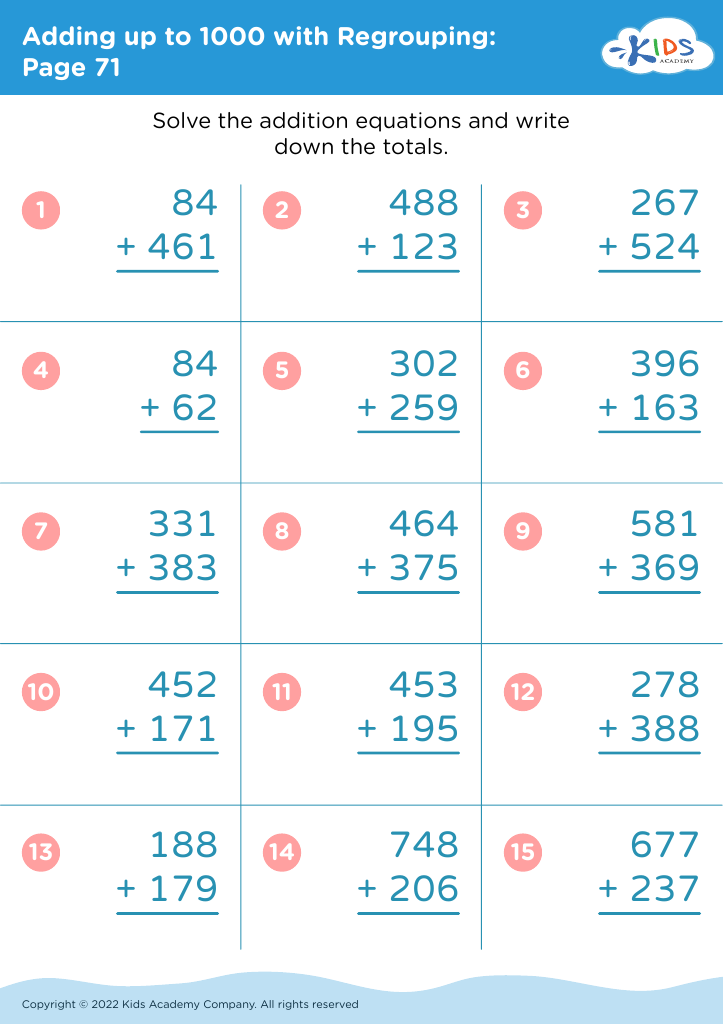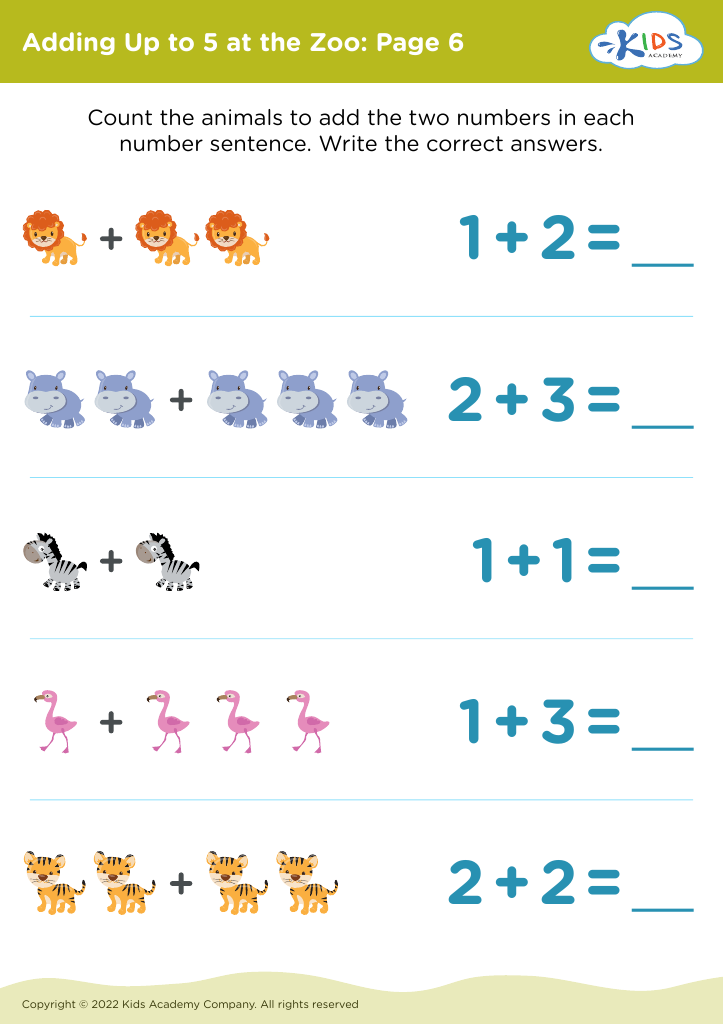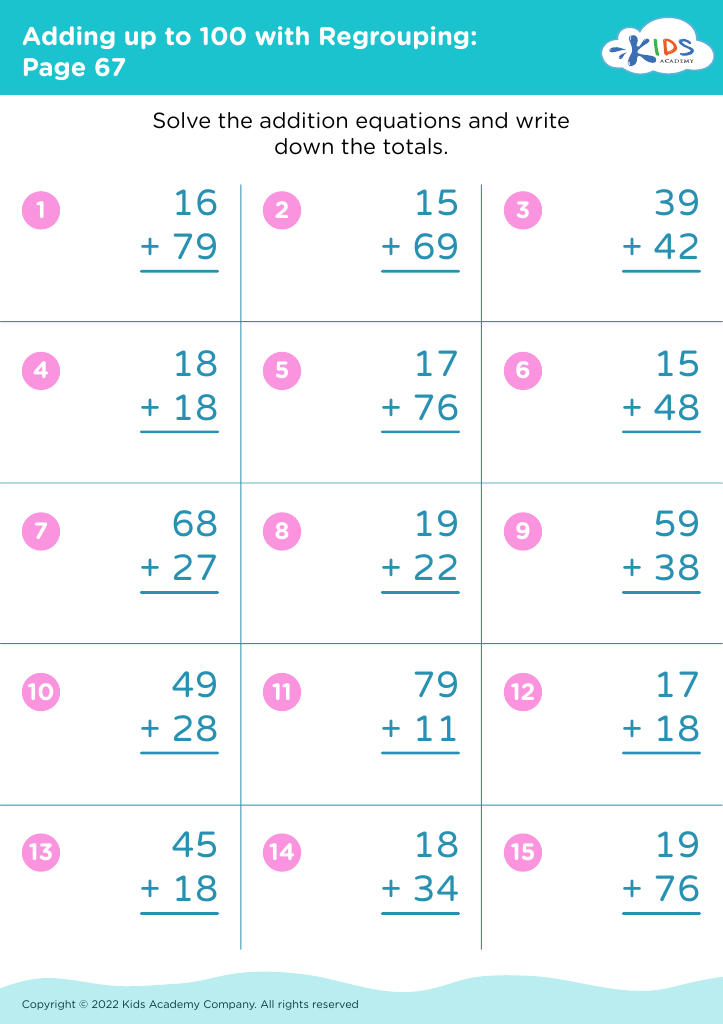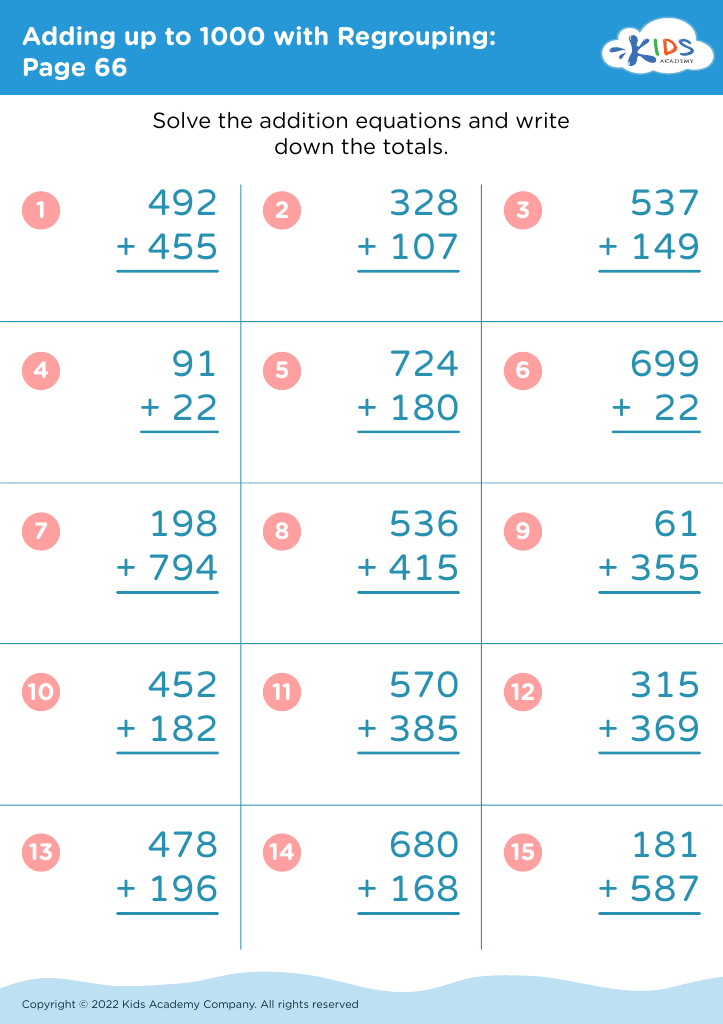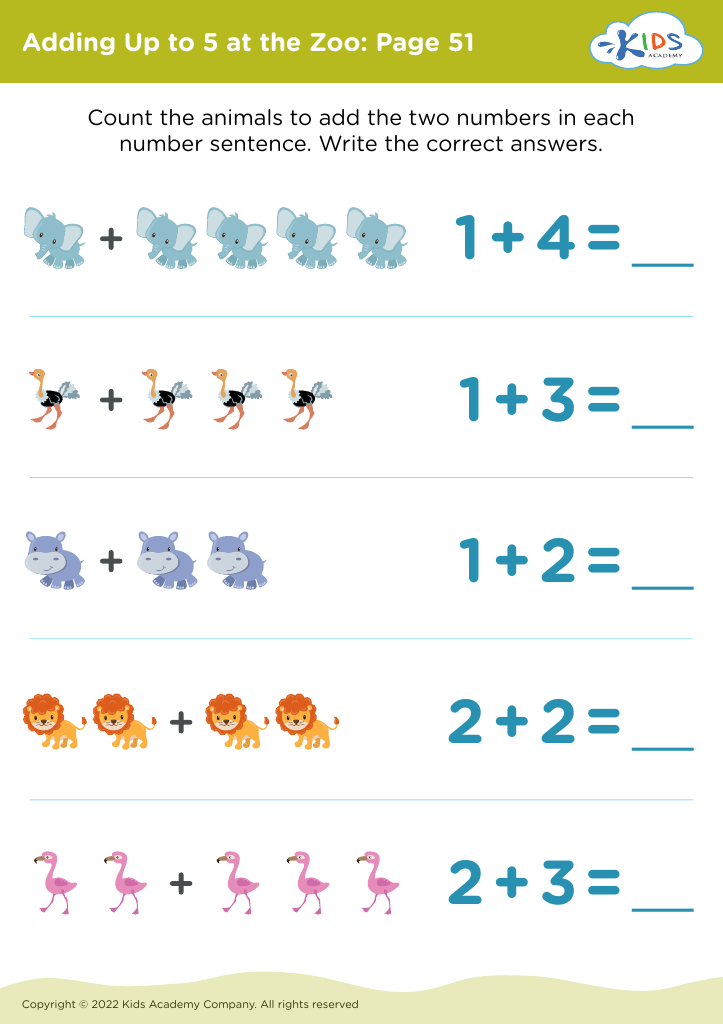Improves counting skills Addition Worksheets for Ages 4-9
6 filtered results
-
From - To
Boost your child's counting skills with our engaging Addition Worksheets designed for ages 4-9! These worksheets offer a fun and interactive way for young learners to develop essential math skills. Through a variety of exercises and colorful designs, children can practice counting and basic addition in a stress-free environment. Our resources cater to diverse learning styles, ensuring every child can grasp fundamental concepts at their own pace. Perfect for home or classroom use, these printable worksheets not only strengthen counting and addition skills but also foster a love for math in early learners. Discover the joy of learning with Kids Academy today!
Parents and teachers should prioritize improving counting skills and addition for children aged 4-9 because these foundational skills are essential for a child’s overall mathematical development. Mastery of counting lays the groundwork for understanding number concepts, enabling children to isolate numbers, recognize patterns, and develop a sense of quantity. At this age, children start engaging in more complex mathematical tasks, and a solid understanding of counting directly influences their ability to tackle addition and subtraction.
Furthermore, improving these skills supports cognitive development as children learn to process numerical information and enhance their problem-solving capabilities. Early proficiency in basic math tends to lead to greater confidence, allowing students to approach more advanced concepts in later grades with a positive attitude.
Additionally, strong counting skills and the ability to add can significantly impact children’s daily lives, from managing money to understanding time. Engaging parents and teachers in fostering these skills creates a collaborative learning environment that can be both fun and educational. Using games, activities, and interactive play ensures that children not only learn but also enjoy the process, setting them on a lifelong path of mathematical literacy and critical thinking. Thus, prioritizing counting and addition is vital for enabling success in school and beyond.

